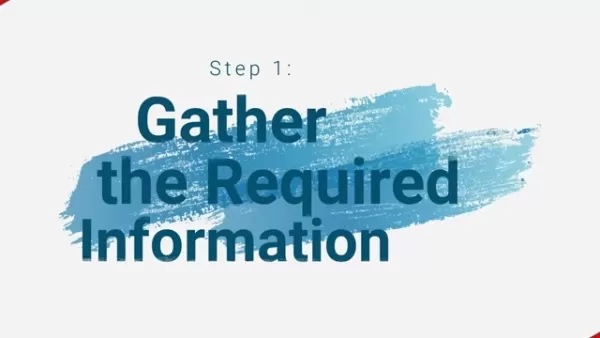A quarter of startups in YC’s current cohort have codebases that are almost entirely AI-generated
AI's Growing Role in Code Generation: Insights from Y Combinator
The landscape of software development is evolving rapidly, with AI playing an increasingly central role. A notable example of this trend is evident in the latest cohort from Y Combinator, the renowned Silicon Valley startup accelerator. According to Jared Friedman, a managing partner at YC, a significant 25% of the W25 startup batch have utilized AI to generate 95% of their codebases. This figure, Friedman clarified, excludes code used for importing libraries and focuses on the comparison between human-written and AI-generated code.
Friedman emphasized that these startups are not led by non-technical founders but by highly skilled individuals capable of building products from scratch. "A year ago, they would have built their product from scratch — but now 95% of it is built by an AI," he noted during a conversation shared on YouTube. This shift highlights a significant change in development practices, driven by advancements in AI technology.
The Concept of "Vibe Coding"
In a video titled "Vibe Coding Is the Future," Friedman, along with YC CEO Garry Tan, managing partner Harj Taggar, and general partner Diana Hu, delved into the emerging trend of "vibe coding." This approach, recently popularized by Andrej Karpathy, a former head of AI at Tesla and ex-researcher at OpenAI, involves using large language models (LLMs) to generate code based on natural language and intuition, rather than traditional coding techniques.
Challenges with AI-Generated Code
Despite the enthusiasm, AI-generated code is not without its challenges. Various studies and reports have highlighted potential issues, including security vulnerabilities, application outages, and coding errors that necessitate significant debugging efforts from developers. Diana Hu pointed out the importance of being able to read and identify bugs in AI-generated code. "You have to have the taste and enough training to know that an LLM is spitting bad stuff or good stuff. In order to do good 'vibe coding,' you still need to have taste and knowledge to judge good versus bad," she explained.
Garry Tan echoed this sentiment, stressing the necessity of classical coding skills for long-term product sustainability. He posed a hypothetical scenario: "Let's say a startup with 95% AI-generated code goes out [in the market], and a year or two out, they have 100 million users on that product. Does it fall over or not? The first versions of reasoning models are not good at debugging. So you have to go in-depth of what's happening with the product."
The Future of AI in Coding
The investment community and developers alike are increasingly embracing AI-powered coding. Startups like Bolt.new, Codeium, Cursor, Lovable, and Magic have collectively raised hundreds of millions in funding over the past year, signaling strong market confidence in this technology. Garry Tan concluded, "This isn’t a fad. This isn’t going away. This is the dominant way to code. And if you are not doing it, you might just be left behind."
The rise of AI in code generation is reshaping the tech industry, offering new efficiencies but also presenting new challenges that developers and founders must navigate to succeed in this evolving landscape.
Related article
 Master Emerald Kaizo Nuzlocke: Ultimate Survival & Strategy Guide
Emerald Kaizo stands as one of the most formidable Pokémon ROM hacks ever conceived. While attempting a Nuzlocke run exponentially increases the challenge, victory remains achievable through meticulous planning and strategic execution. This definitiv
Master Emerald Kaizo Nuzlocke: Ultimate Survival & Strategy Guide
Emerald Kaizo stands as one of the most formidable Pokémon ROM hacks ever conceived. While attempting a Nuzlocke run exponentially increases the challenge, victory remains achievable through meticulous planning and strategic execution. This definitiv
 AI-Powered Cover Letters: Expert Guide for Journal Submissions
In today's competitive academic publishing environment, crafting an effective cover letter can make the crucial difference in your manuscript's acceptance. Discover how AI-powered tools like ChatGPT can streamline this essential task, helping you cre
AI-Powered Cover Letters: Expert Guide for Journal Submissions
In today's competitive academic publishing environment, crafting an effective cover letter can make the crucial difference in your manuscript's acceptance. Discover how AI-powered tools like ChatGPT can streamline this essential task, helping you cre
 US to Sanction Foreign Officials Over Social Media Regulations
US Takes Stand Against Global Digital Content Regulations
The State Department issued a sharp diplomatic rebuke this week targeting European digital governance policies, signaling escalating tensions over control of online platforms. Secretary Marco
Comments (2)
0/200
US to Sanction Foreign Officials Over Social Media Regulations
US Takes Stand Against Global Digital Content Regulations
The State Department issued a sharp diplomatic rebuke this week targeting European digital governance policies, signaling escalating tensions over control of online platforms. Secretary Marco
Comments (2)
0/200
![DanielLewis]() DanielLewis
DanielLewis
 August 17, 2025 at 1:00:59 AM EDT
August 17, 2025 at 1:00:59 AM EDT
AI writing most of the code for YC startups is wild! 🤯 Feels like we're one step away from AI just building the whole company. What's next, AI CEOs?


 0
0
![RonaldMartinez]() RonaldMartinez
RonaldMartinez
 August 12, 2025 at 7:00:59 AM EDT
August 12, 2025 at 7:00:59 AM EDT
AI writing most of the code for YC startups is wild! 🤯 Wonder how much human coders will shift to just tweaking AI outputs.


 0
0
AI's Growing Role in Code Generation: Insights from Y Combinator
The landscape of software development is evolving rapidly, with AI playing an increasingly central role. A notable example of this trend is evident in the latest cohort from Y Combinator, the renowned Silicon Valley startup accelerator. According to Jared Friedman, a managing partner at YC, a significant 25% of the W25 startup batch have utilized AI to generate 95% of their codebases. This figure, Friedman clarified, excludes code used for importing libraries and focuses on the comparison between human-written and AI-generated code.
Friedman emphasized that these startups are not led by non-technical founders but by highly skilled individuals capable of building products from scratch. "A year ago, they would have built their product from scratch — but now 95% of it is built by an AI," he noted during a conversation shared on YouTube. This shift highlights a significant change in development practices, driven by advancements in AI technology.
The Concept of "Vibe Coding"
In a video titled "Vibe Coding Is the Future," Friedman, along with YC CEO Garry Tan, managing partner Harj Taggar, and general partner Diana Hu, delved into the emerging trend of "vibe coding." This approach, recently popularized by Andrej Karpathy, a former head of AI at Tesla and ex-researcher at OpenAI, involves using large language models (LLMs) to generate code based on natural language and intuition, rather than traditional coding techniques.
Challenges with AI-Generated Code
Despite the enthusiasm, AI-generated code is not without its challenges. Various studies and reports have highlighted potential issues, including security vulnerabilities, application outages, and coding errors that necessitate significant debugging efforts from developers. Diana Hu pointed out the importance of being able to read and identify bugs in AI-generated code. "You have to have the taste and enough training to know that an LLM is spitting bad stuff or good stuff. In order to do good 'vibe coding,' you still need to have taste and knowledge to judge good versus bad," she explained.
Garry Tan echoed this sentiment, stressing the necessity of classical coding skills for long-term product sustainability. He posed a hypothetical scenario: "Let's say a startup with 95% AI-generated code goes out [in the market], and a year or two out, they have 100 million users on that product. Does it fall over or not? The first versions of reasoning models are not good at debugging. So you have to go in-depth of what's happening with the product."
The Future of AI in Coding
The investment community and developers alike are increasingly embracing AI-powered coding. Startups like Bolt.new, Codeium, Cursor, Lovable, and Magic have collectively raised hundreds of millions in funding over the past year, signaling strong market confidence in this technology. Garry Tan concluded, "This isn’t a fad. This isn’t going away. This is the dominant way to code. And if you are not doing it, you might just be left behind."
The rise of AI in code generation is reshaping the tech industry, offering new efficiencies but also presenting new challenges that developers and founders must navigate to succeed in this evolving landscape.
 Master Emerald Kaizo Nuzlocke: Ultimate Survival & Strategy Guide
Emerald Kaizo stands as one of the most formidable Pokémon ROM hacks ever conceived. While attempting a Nuzlocke run exponentially increases the challenge, victory remains achievable through meticulous planning and strategic execution. This definitiv
Master Emerald Kaizo Nuzlocke: Ultimate Survival & Strategy Guide
Emerald Kaizo stands as one of the most formidable Pokémon ROM hacks ever conceived. While attempting a Nuzlocke run exponentially increases the challenge, victory remains achievable through meticulous planning and strategic execution. This definitiv
 AI-Powered Cover Letters: Expert Guide for Journal Submissions
In today's competitive academic publishing environment, crafting an effective cover letter can make the crucial difference in your manuscript's acceptance. Discover how AI-powered tools like ChatGPT can streamline this essential task, helping you cre
AI-Powered Cover Letters: Expert Guide for Journal Submissions
In today's competitive academic publishing environment, crafting an effective cover letter can make the crucial difference in your manuscript's acceptance. Discover how AI-powered tools like ChatGPT can streamline this essential task, helping you cre
 US to Sanction Foreign Officials Over Social Media Regulations
US Takes Stand Against Global Digital Content Regulations
The State Department issued a sharp diplomatic rebuke this week targeting European digital governance policies, signaling escalating tensions over control of online platforms. Secretary Marco
US to Sanction Foreign Officials Over Social Media Regulations
US Takes Stand Against Global Digital Content Regulations
The State Department issued a sharp diplomatic rebuke this week targeting European digital governance policies, signaling escalating tensions over control of online platforms. Secretary Marco
 August 17, 2025 at 1:00:59 AM EDT
August 17, 2025 at 1:00:59 AM EDT
AI writing most of the code for YC startups is wild! 🤯 Feels like we're one step away from AI just building the whole company. What's next, AI CEOs?


 0
0
 August 12, 2025 at 7:00:59 AM EDT
August 12, 2025 at 7:00:59 AM EDT
AI writing most of the code for YC startups is wild! 🤯 Wonder how much human coders will shift to just tweaking AI outputs.


 0
0





























